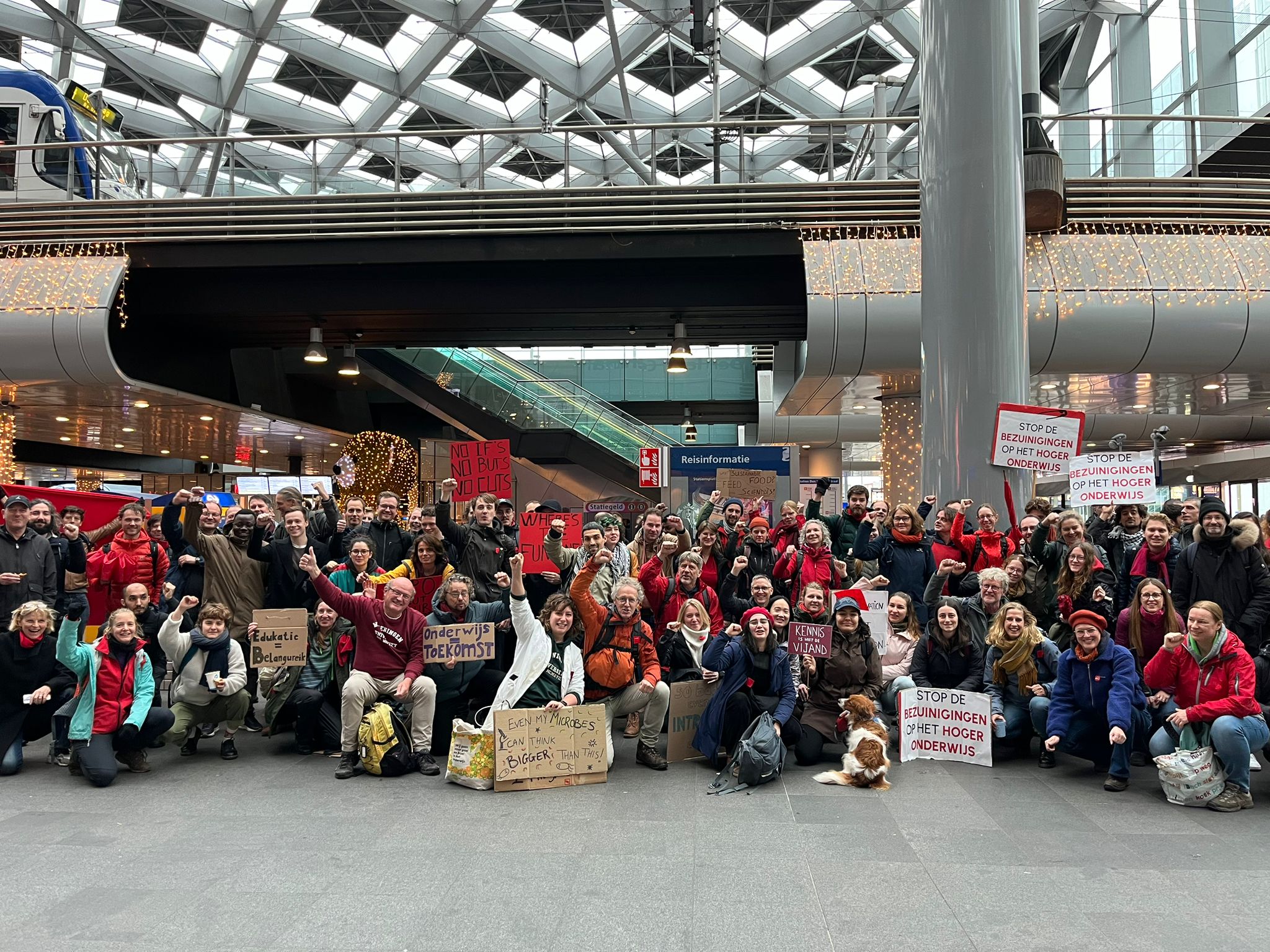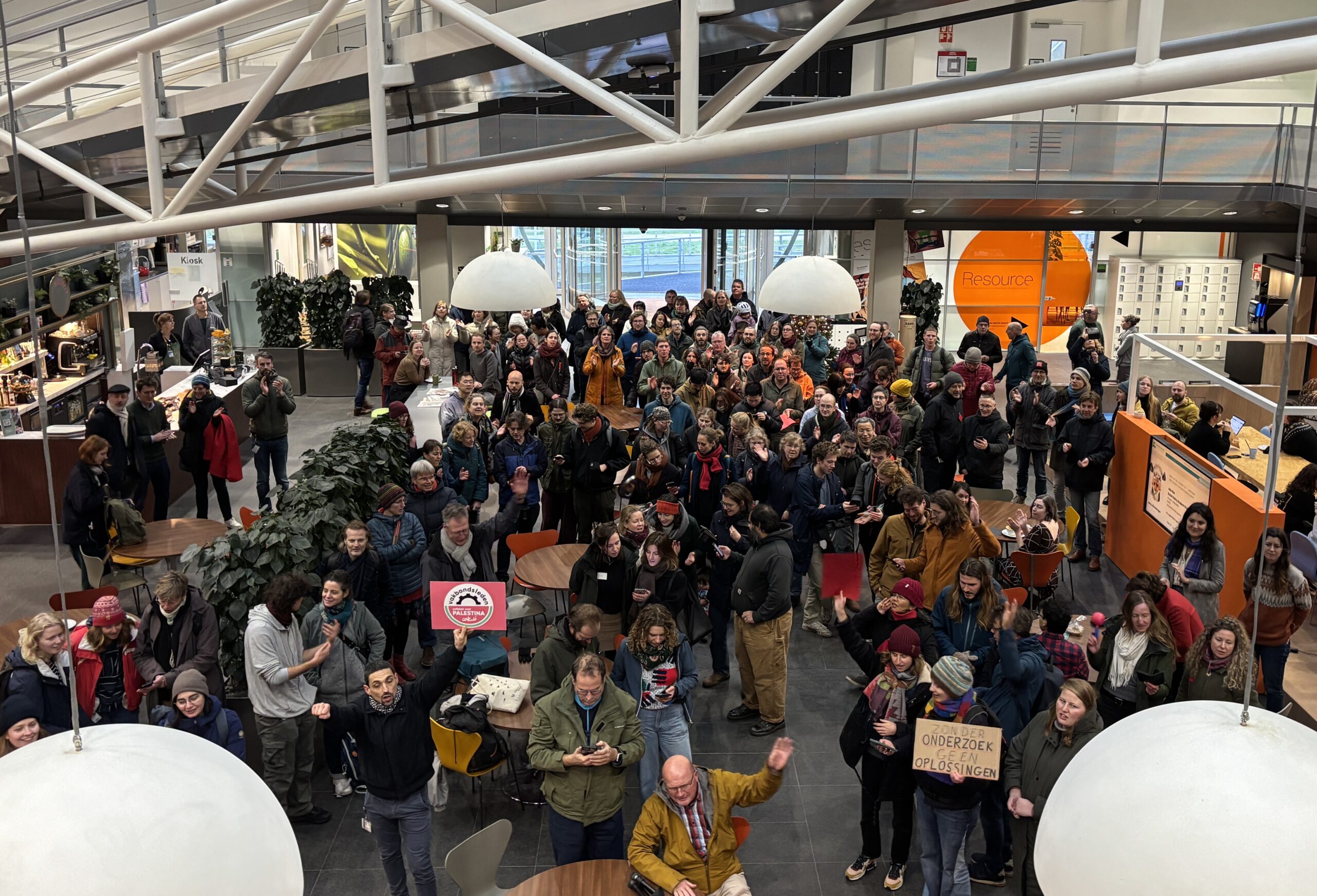Text Marieke Rotman
The collective labour agreements (CAOs) for WR and NU have been updated recently. The differences between the agreements have been the subject of criticism. The union says the two cannot be compared, but the works council and the unions now state that the conditions are reasonably similar.
WUR has two different CAOs. One for Wageningen University (CAO-NU, the CAO for Dutch Universities) and one for Wageningen Research (CAO-WR). Both have recently been updated. Differences between the two agreements have led to criticism in the past. WU employees, for example, have a day off on Good Friday and 5 May and work 38 hours for a full-time week. WR employees work 36 hours for a full-time week. The two agreements also differ in salary scales, although they are becoming increasingly similar.
A preliminary agreement on the CAO-WR was reached on 5 July, shortly after an agreement was reached on the CAO-NU on 30 June. ‘This brings us closer yet to achieving equivalence in the employment conditions in both CAOs’, says Wageningen Research, which reached the preliminary agreement with the unions FNV, CNV and CMHF.
Incomprehension
The CAO-NU agreement includes a salary increase of 9 per cent as of 1 August and a one-off payment of maximum 1200 euros, depending on salary scale. The new WR agreement includes a 4.3 per cent increase in the end-of-year bonus, raising the total to 8.3 per cent and a 4.7 per cent increase in the salaries. The lower salary scales are to receive a one-off payment as well. According to the announcement, WU salaries were lower than those of WR employees but have been brought closer together with the abovementioned changes.
The parties speak of ‘harmonisation of the employment conditions’ in the two CAO agreements, as the differences may lead to strange situations in the office. In some departments, half of the staff fall under one agreement while the other half falls under the other agreement, leading to discontent among employees. Critical remarks were posted on the intranet after the new CAO-WR was announced, stating that the differences between the two labour agreements would persist.
Surprised
‘The employers are two different entities, each with their own conditions. It’s like comparing apples and oranges’, says Tanja Schrijver, negotiator on behalf of FNV. ‘The unions offered WR the choice of joining the CAO-NU, with the option of negotiating additional conditions for Research, but they preferred to keep their own collective labour agreement.’
We have heard our members call for a higher end-of-year bonus for many years while there was no financial room
Tanja Schrijver, regotiator for FNV
She was surprised by the many reactions to the news. For example, criticism on the increased end-of-year bonus abounds on the intranet because this bonus is subject to higher taxes than a regular salary increase. ‘But we have heard our members call for a higher end-of-year bonus for many years while there was no financial room.’
Secondary benefits
Michel Riksen of the work council says the unions and WR have done a fairly good job of aligning the two labour agreements. ‘Particularly support staff may experience discontent if two people doing the same job receive different salaries because one is employed under WR conditions and the other under WU.’ The work council focuses on secondary employment benefits, as is their task. For example, development possibilities. ‘The board and the unions must diligently consider how agreements on these conditions can be implemented.’
We will discuss this with the unions towards the end of this year so that colleagues are able to explain it to one another over coffee
WUR spokesperson
HR Director Martijn Scheen, Director of Operations of the Plant Sciences Group Petra Caessens and two legal experts represented Wageningen Research in the negotiations. A spokesperson explained that joining the CAO-NU was not possible. ‘They are two separate entities. We do want to align more in the future, so we will investigate how we can do that in the future. We will discuss this with the unions towards the end of this year so that colleagues are able to explain it to one another over coffee.’ He believes that different agreements within a single department can exist. ‘We want to bring more clarity.’
Along with the other two unions, the FNV is currently consulting with their constituents. Members can vote in favour or against the current agreement until 24 July.

 Photo Shutterstock
Photo Shutterstock 

